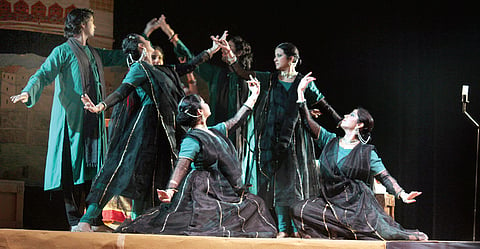

Some time ago on Quora, the online forum where just about anybody with a question can seek answers, a history geek polled on the most definitive and transformative moment in India’s past. The usuals sprung up - the forming of the East India Company, Sardar Vallabhbhai Patel being passed over as Prime Minister for Jawaharlal Nehru, but it was the moving account of Dara Shikon’s defeat in battle with his brother Aurangzeb that seemed to convince most.
Shikon was the eldest of six siblings and was favoured to succeed his father Shah Jahan, a plan laid waste by an ambitious Aurangzeb who when he did take on the throne changed the secular character of the Mughal reign so far.
His orthodox religious beliefs could have not contrasted more with Dara, a Sufi sympathiser who it is said learnt Sanskrit and translated Upnishads into Persian and commented on similarities between Hinduism and Islam.
“Dara Shikhon is such a composite character and yet, he has been largely ignored by historians and creative minds. What we have are enough on the stories of Salim and Anarkali,” says Kamalesh Kohli.
The Delhi-based producer is the founder of Impresario Asia which staged the play Dara Shikoh in 2004. Directed by the legendary M S Sathyu and written by Danish Iqbal, it managed a 20-show run then. Kolhi writes it off to the unprofitability of theatre.
And yet, this year, Kohli has revived the production with all its flourishes of songs and dances and has brought it to Bangalore, after shows in Mysore, Gurgaon, Delhi, Lucknow and Sonepat. Dara Shikhon will be staged at Ranga Shankara, February 22 and 23. It travels to Sanehalli, near Davangere and Dharwad next. “It’s going to cost me `1.5 to 2 lakh to do this, which is a risk, but I have to,” he says.
The play steers clear of the bloody history of Dara’s life and times and concentrates on his patronage of Sufism, to the arts, to music, to liberalism.
So feature Sufi poetry of Quli Qutub Shah and Walli Dakhni that have been set to music by Ustad Iqbal Ahmed Khan of Delhi Gharana. Kathak exponent Ashtha Dixit has choreographed some sequences.
“I am not interested in palace intrigues. All rich men fight. What I want to highlight is the philosophy of Dara that can’t be touched, no matter that he lost. Like with Gandhi, his death didn’t kill Gandhism. So for Dara’s inclusive approach to society and politics. It was Dara who brought out that Satyam, ‘Shivam’ Sundaram’ and Haq, Jalal, Jamal are nothing but the same. And bear in mind, it was Aurangzeb’s narrow-mindedness, his run-ins with the Sikhs, the Marathas that finally began to chip at the edifice of the great Mughal empire. Had Dara succeeded, it would have been a society of mutual respect.”
Condensing the complexities of Dara Shikhon into a 90-minute visual montage was of course a challenge. “We spent two years writing it. The play has also evolved with each staging. There’s always the need to balance audience attention with our conviction about the project,” says Kohli.
The joys of the production have been many. One being working with mentor Sathyu under whom Kohli learnt theatre in 1961. The other, Kohli says, is being able to pass on Dara’s message. “The last time we staged in Bangalore, linguistically about 40 per cent of the play was lost to them (the audience), and yet we received a standing ovation.”
Dara Shikhon was executed in public view on orders from Aurangzeb.
aparna.chandra@newindianexpress.com